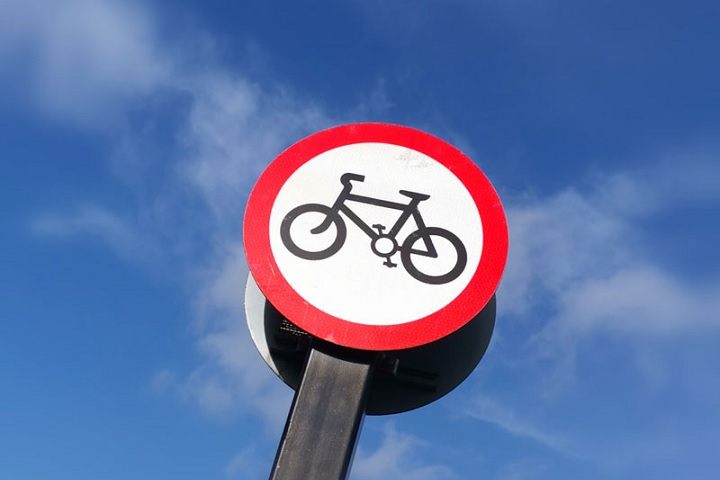
Causing death or serious injury by dangerous or careless cycling is set to become an offence, after the Government agreed to a change in the law.
Under the change, reported by BBC News, dangerous cyclists could face up to 14 years in prison.
It has followed campaigning by Tory MP Iain Duncan Smith, who said cyclists should be accountable for ‘reckless behaviour’.
Mr Duncan Smith had proposed an amendment to the Criminal Justice Bill, which is currently going through Parliament.
Speaking in the House of Commons, he said his proposal was not “anti-cycling”.
“Quite the opposite, it’s about making sure this takes place in a safe and reasonable manner,” he said.
Mr Duncan Smith raised the case of Matthew Briggs, whose wife died from head injuries following a collision with a cyclist in London in 2016.
Sir Iain told MPs that Mr Briggs’ attempt to get a cyclist prosecuted “involved a legal process that was so convoluted and difficult” even the presiding judge raised concerns and said the laws “needed to be addressed”.
His proposed amendment creates an offence of causing death or serious injury by dangerous, careless or inconsiderate cycling.
He said it would “achieve equal accountability” adding: “Just as drivers are held accountable for dangerous driving that results in death, cyclists I think should face similar consequences for reckless behaviour that leads to fatalities.”
Backing the change, transport secretary, Mark Harper, said: “Most cyclists, like most drivers, are responsible and considerate.
“But it’s only right that the tiny minority who recklessly disregard others face the full weight of the law for doing so.”
This amendment is being reintroduced by Ian Duncan-Smith, this year, 2025.
Such a pity that you haven’t included the arguments against this amendment, even the BBC usually includes them!
One is that it doesn’t include other modes that can kill pedestrians e.g. scooters, mobility scooters, other pedestrians. You might say that such deaths are extremely rare, but so are deaths of pedestrians caused by cyclists. Neither does it doesn’t introduce similar punishments for pedestrians who kill cyclists: again rare, but it does happen. If this law doesn’t include other rare, but possible causes of pedestrian deaths, it is biased against cyclists.
The sole reason for this new law is Matthew Briggs, who has lobbied incesssantly after his wife was tragically killed in collision with a cyclist. Both IDS and Heidi Alexander, the transport minister, admit that they have been very influenced by Mr Briggs: they cannot therefore be impartial, and I think it’s important for our legislators to be that.
Everyone seems to agree that the law needs updating, but surely it should be done with proper consideration and input from all parties, not a knee jerk reaction to one tragic event?
Richard Burton, Lydney
0